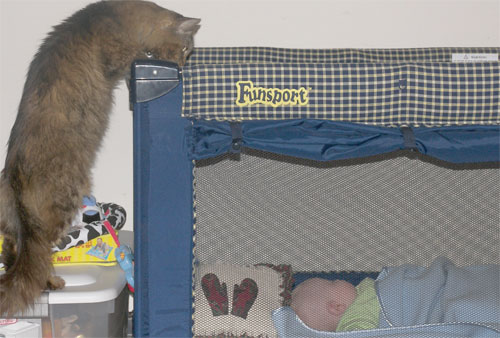I just came across a really great post on the Internet Monk blog called, “Five Reasons I Don’t Like MLK Day.” The author, Michael Spencer, is actually a big fan of Martin Luther King, and you see his admiration throughout the post. But he makes some really good points. For instance, he doesn’t like the fact that it’s become an African-American holiday, instead of an American holiday (after all, President’s Day isn’t a caucasian holiday).
Anyway, it’s a great post. And it’s worth sticking around for the comments, too.
My brother Rick also wrote about MLK Day on his blog.
I’ve been rather indifferent about the holiday, perhaps because I know so few African-Americans. But after seeing the “I Have a Dream” speech on Sunday at church, and after reflecting on it this week, I’ve realized how worthy this holiday is.
I’ve also tried to analyze my tangled thoughts on race. I spent my first nine years in an all-white town with a racist reputation (Huntington, Ind.). Then we moved to Pennsylvania, where Dad taught in an all-black urban school (including during the riots following King’s assassination). Meanwhile, in my suburban elementary school, we had one black student in my fourth-grade class: Keemie Hampton. I remember her name, when I can’t remember the names of any other classmates, which is interesting. She was a nice girl who acted just like all of the white girls; she just had a different skin color. I have memories of some derogatory comments guys made about her because of her skin color, but not in her presence. Still, while I don’t recall any blatant racism among my classmates, I’m sure Keemie has different memories.
Then we moved to Arizona, to a minority-free town (Lake Havasu City). And then, as I entered my junior year of high school, we settled into our first pastorate in Pixley, Calif., a multi-racial town. What an eye-opener. My first day of school, upon leaving the bus at the end of the day, I found myself surrounded by a group of blacks as one of them (a skinny guy I actually might have been able to take) tried to pick a fight with me, and all the other blacks egged us on. I managed to escape unscathed, but it certainly implanted some enduring impressions in a mind which, until then, was pretty much a blank slate when it came to racial issues.
I quickly changed buses. I still rode with blacks and hispanics and Filipinos and Portuguese and other ethnics (including white Oakies and Arkies), but I never felt threatened again.
We had a full-court basketball court in back of the parsonage, and I regularly played with local blacks and Hispanics. Race was never an issue in those games; ability was what mattered, and I could hold my own just fine. Plus, they appreciated that we let them use the court, and they were generally respectful of our property.
Our church had a team in the summer basketball park league. One night I seriously outplayed Duane, partly because he was half-drunk (I could clearly smell the wine as he tried to guard me), and he took offense. After the game, he came at me with a crowbar, and none of my church friends were around. I looked to Duane’s brother, Alvin, for help (we played on the high school team together), but he just looked away, and I knew I was on my own against a bigger, stronger guy who was going psycho. I still don’t know what kept Duane from swinging the crowbar before I got in the Toyota and drove away. It scared the daylights out of me.
After two years in that town, I carried away a lot of negative thoughts regarding people of other races–not racist thoughts, per se (I’ve never considered myself racist), but some definite baggage. Maybe some of those “first impressions” are still with me. These thoughts have been on my mind this week.
But despite all of that, I can admire the necessary, late-coming changes which occurred in America as a result of Martin Luther King’s incredible leadership.
 Speaking of American Idol–and isn’t everybody?–I need to give a thumbs-up to Chris Daughtry’s album, “Daughtry.” I listened to the clips on iTunes several weeks ago and liked them all, so I downloaded the whole album. And I tell you–it’s really good. A solid, hard-rocking, “no compromise Chris” album.
Speaking of American Idol–and isn’t everybody?–I need to give a thumbs-up to Chris Daughtry’s album, “Daughtry.” I listened to the clips on iTunes several weeks ago and liked them all, so I downloaded the whole album. And I tell you–it’s really good. A solid, hard-rocking, “no compromise Chris” album.





